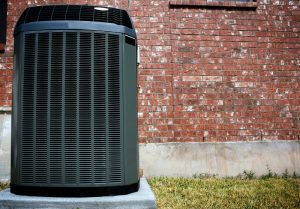 Some people might say that we are spoiled in this day and age, at least as far as our expectations for comfort in our homes are concerned. Well, those same people will realize that we aren’t spoiled the day that their air conditioning systems give out on them. Air conditioners are a necessity when the heat of summer is at its highest. Any problems with your air conditioner in Charlottesville, VA are cause for major concern, especially when the summer season is in full swing.
Some people might say that we are spoiled in this day and age, at least as far as our expectations for comfort in our homes are concerned. Well, those same people will realize that we aren’t spoiled the day that their air conditioning systems give out on them. Air conditioners are a necessity when the heat of summer is at its highest. Any problems with your air conditioner in Charlottesville, VA are cause for major concern, especially when the summer season is in full swing.
This is precisely why it is so important that you learn to recognize the warning signs that problems are developing with your home cooling system. What types of problems are we talking about? Well, today we are specifically focusing on refrigerant leaks. Not only are these among the most common problems that homeowners encounter with their ACs, but they are also—and unfortunately—among the most common. Be sure to keep these tips in mind, and let us know the moment that you suspect any trouble with your system.
What Refrigerant Does (Hint: It’s Important!)
Okay, so in order to understand why it is that refrigerant leaks are such a big deal, you must first understand how it is that refrigerant functions in your air conditioning system. Your air conditioner does not generate “coolness” in the way that your heater generates heat—either by combusting fuel or using electric resistance. When you feel cool air coming from your vents, you are feeling the absence of heat. It is the refrigerant cycle that allows for heat to be removed from the air.
The indoor AC unit houses the evaporator coil. This is where refrigerant, fittingly enough, evaporates in your system. As refrigerant evaporates, it draws heat out of the air. That cooled air is redistributed throughout your home, while the warmed refrigerant is sent out to the outdoor unit. In the condenser—again, fittingly—the refrigerant is condensed. As this happens, the refrigerant releases its heat, which is dispersed outdoors with the aid of the fins on the outdoor unit.
Which Brings Us to the Problem with a Low Refrigerant Charge
As you can imagine, a low refrigerant charge seriously impedes the overall cooling capacity of your air conditioner. Air conditioners are designed to work with a specific refrigerant charge. A low level of refrigerant always suggests a problem. It is not consumed like a fuel, but is instead recycled throughout the system over and over in a closed loop.
If your system is low on refrigerant, it means that A) it was improperly charged to begin with or B) you have a leak. In either case, you need to have a professional address the problem, fix any leaks, and recharge the refrigerant as needed. Too little refrigerant means too much strain on the system. It means seriously reduced energy efficiency, potential icing up of the coil (which exacerbates the problem further), and, eventually, serious damage to the compressor. If you notice any irregularities with your system, potentially related to low refrigerant or not, contact Mack Morris Heating & Air Conditioning right away.
We can’t control the weather outside of your home, but we can control the weather inside your home.
